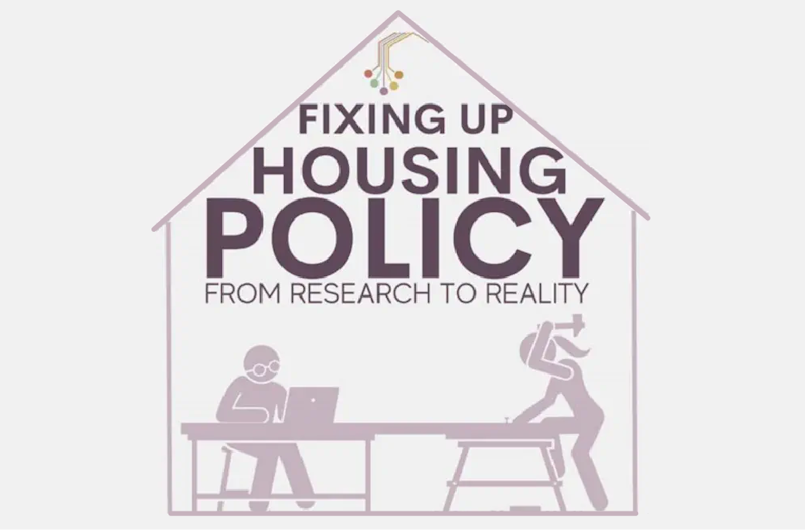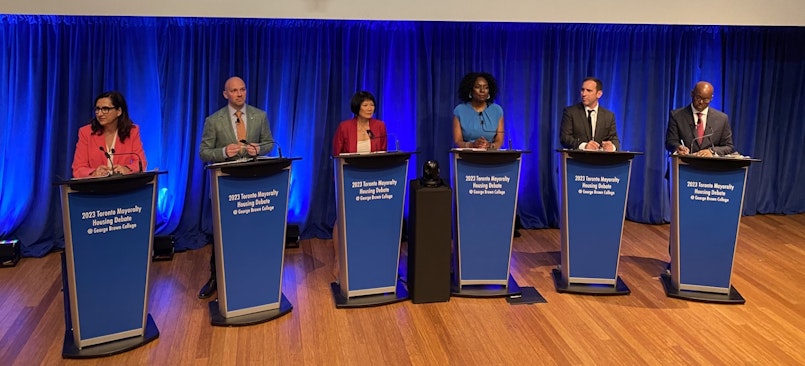What should you do when something’s wrong with your new condo? Don’t panic. Here are six things that could go wrong with a new home — and who to turn to for help when they do.
Your new home is the realization of a dream. If you’re like most recent home buyers, you’ve probably been waiting (and saving) for years for this moment. So when something doesn’t look quite right, it can be disappointing.
What should you do when something’s wrong with your new condo? Don’t panic. Things happen, but there are ways to make them right. Get help from the people whose job it is to right the wrongs and fix what’s broken.
So, especially for new Options for Homes homeowners, here are six things that could go wrong with a new home — and who to turn to for help when they do.
Problem 1: Something goes wrong inside your unit
Example: You pulled the kitchen faucet handle right off
In general, you’re responsible for maintenance of your unit as a homeowner — that means fixing, cleaning and maintaining just about everything within your walls, plus windows and any patios. You will be provided with a homeowner's manual that you can read to make note of recommended maintenance tasks, like changing the filter on your heating/cooling unit once a month.
But as careful as you may intend to be, accidents happen. There’s no getting around it: Damage that you yourself cause inside your unit (or your kids, your guests, your pets and so on) is your responsibility to fix.
So, for example, if you pull up on the tap to turn the water on — and then you keep pulling until the handle snaps off? You’ll have to do your first repair as a homeowner. (A dubious milestone.)
And note that if the mishap takes place during interim occupancy, you’ll have to inform Options for Homes via the property manager, and Options will help you determine how to address it.
Bottom line: Who fixes it? You.
Problem 2: Possible defects in your unit
Example: Flooring is pulling up or “cupping”
If something’s wrong with your unit and it’s not your fault, you may not be responsible for fixing it.
For one, as you may know, your condominium unit is covered under Ontario’s Tarion warranty program for the first few years that you live in it (follow the link for more detail). In your first year after taking possession of your unit, the warranty is meant to ensure that your home was constructed in a “workmanlike” manner, free from defects. It also covers unauthorized substitutions — for example, you asked for marble counters and got laminate instead.
Having said that, if you’re a new Options for Homes homeowner, we recommend making the building superintendent or property management company aware of potential warranty issues as they come up. The property management works for the co-op or the condo board (depending on what stage your development is at) at Options communities. They often talk with the builders to make sure these kinds of issues get resolved, especially in newly constructed developments where there can be a number of issues here and there.
And in fact, talking directly to the builder can often result in a quicker and easier resolution to faults with a new unit, so we recommend going this route first, via your property manager.
If informal communication with the builder doesn’t solve the issue, the property manager can also help you determine whether it might be covered by your Tarion warranty. They’re often able to assist with submitting a claim if that’s the case. Options for Homes may also become involved to help facilitate your Tarion claim, if it comes to that.
Bottom line: Who fixes it? If it is a builder’s defect then the builder may offer to fix it. Otherwise you may need to prepare a Tarion claim.
Problem 3: Issues with heating, air conditioning or hot water
Example: You’re not getting any hot water
In many developments, the air conditioning, heat and hot water are controlled through a centralized system, which the property management will deal with if there’s an issue. (For quick service, it probably makes sense to contact the superintendent, as opposed to the property management company’s central office.)
However, if you live in a development where owners have separate appliances for heat, air and hot water — HVAC units in each individual home, for example — then you may be renting this equipment from an external provider. You’ll have to contact them if you need help. This kind of arrangement is common in townhouse developments, but not in apartment-style condos.
And if you’ve opted to buy your heat/air/hot water appliances rather than renting them, it’s wise to check out the protection plans your provider may offer, to make things easier when something goes wrong.
Bottom line: Who fixes it? Either the property manager, your appliance provider, or you — depending on who owns the unit.
Problem 4: Problems with DIY home improvements?
Example: You damage your tile by changing your countertop
Sometimes a home improvement leads to something that isn’t an improvement at all. Making substantial changes to your condo unit risks causing damage — which you’ll be responsible for. (Your Tarion warranty doesn’t cover “alterations, deletions or additions made by the homeowner.”)
You’ll be on the hook for damage when changing around the elements of your kitchen, or from changing your flooring, or if you puncture a hole in a vent or window when installing a curtain rod (which will let moisture in) — and so on: There are lots of ways you can cause damage with even a simple DIY job. So proceed with caution.
Bottom line: Who fixes it? This is definitely a “you break it, you fix it” situation.
Problem 5: Issues with common elements
Example: Garbage chute keeps getting stuck
Whether it’s an elevator button that doesn’t work, a broken fridge in the party room or a damaged curb in the parking lot, a problem with one of your condominium’s common elements is a job for the property manager.
For issues with plumbing and electrical systems that serve more than one unit (as opposed to just yours), call the building superintendent, who works on-site for the property management company.
Bottom line: Who fixes it? The property manager.
Problem 6: Difficulties getting help from the property manager
As you’ve probably figured out from the examples above, the superintendent and property management staff are important points of contact for maintenance issues in and around your condominium unit. In the unlikely event that you find they’re not responsive or helpful, what do you do?
Contact the co-op board (if your development is in the interim occupancy phase) or the condo board (after the condo is officially closed). They should help facilitate a solution for you.
Bottom line: Who fixes it? The co-op or condo board.
Still not sure who to call? The Options for Homes team can help you figure it out. For any problems you may have, don’t hesitate to get in touch if you’re having trouble getting help through the recommended channels. Making sure you’re happy in your home is among our highest priorities.








